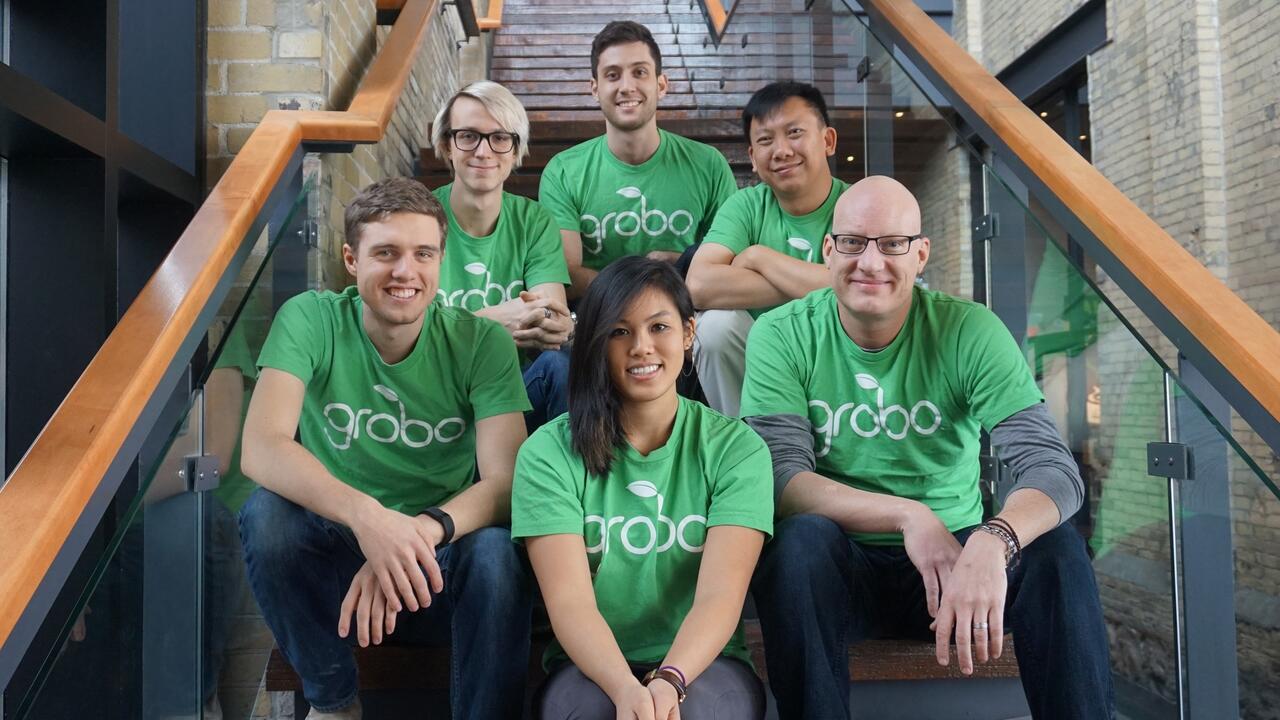
Grobo pivots from indoor produce to medical marijuana
Bjorn Dawson was just 20 years old when he bought his first home in 2012 – and got a great business idea in the bargain

Bjorn Dawson was just 20 years old when he bought his first home in 2012 – and got a great business idea in the bargain
By Emily Lucke Faculty of EngineeringBjorn Dawson (BASc '16, Mechanical) was just 20 years old when he bought his first home in 2012 – and got a great business idea in the bargain. 
The previous owners were avid gardeners, so he experimented by planting a few seeds himself and discovered how much better homegrown produce tastes.
Then a second-year mechanical engineering student at the University of Waterloo, Dawson wasn’t about to let the long Canadian winter impede his newfound love of gardening.
“I wanted to set up an indoor growing system so I could continue to enjoy homegrown food, but none of the available products worked as I thought they should,” he recalls. “So I designed my own.”
Dawson imagined a system that could grow plants from seed to harvest with the ease of an instant coffee machine. Two years later, he has made it a reality through a company called Grobo.
Like many entrepreneurial ventures, however, Grobo hasn’t followed a straight trajectory in terms of growth.
“There are other products on the market trying to do what Grobo is doing, and everyone hits the same struggle - compromising how the system works to keep costs low enough for the general public,” says Dawson. “At first, this was a stumbling block for us, too.”
But as Canadian laws on medical cannabis began shifting, Grobo recognized a huge opportunity and pivoted, leading it to new levels of fruitfulness.
“It’s a profitable market with an unmet need, and by switching our focus to cannabis we have been able to connect with some amazing investors,” says Dawson.
Dawson and his team have embraced what he calls a “misunderstood plant.”
“It has the potential to change people’s lives,” he says. “For example, the U.S. Food and Drug Administration is currently testing cannabis as a treatment for post-traumatic stress disorder in veterans.”
Dawson says that moving into the lucrative medical marijuana industry has given Grobo access to “the best science.”
“We now have a larger growing unit with an attractive design, a fully controlled growing environment and the most powerful LEDs on the market,” he says. “Our product controls every single aspect of the plant’s growth.”
Dawson credits Waterloo, especially the co-op program it is so widely known for, with providing fertile ground for a budding entrepreneur.
“I was running Grobo for two years while still in school with a full-time schedule,” he says. “I spent my final term in China, connecting with suppliers for Grobo, and I wrote my exams remotely. This kind of flexibility is unique to the University of Waterloo.”
Prior to graduating in 2016, Dawson had already started hiring other Waterloo co-op students. He describes them as invaluable assets.
“University of Waterloo students who are considering entrepreneurship should absolutely test it out through Enterprise Co-op,” he says. “It’s an amazing way to find out if entrepreneurship is right for you.”

Read more
How Doug Kavanagh’s software engineering degree laid the foundation for a thriving career in patient care

Read more
Upside Robotics secures new funding to accelerate the future of sustainable farming

Read more
Redefining capstone learning by bringing students, faculty and community partners together to tackle real-world challenges
The University of Waterloo acknowledges that much of our work takes place on the traditional territory of the Neutral, Anishinaabeg, and Haudenosaunee peoples. Our main campus is situated on the Haldimand Tract, the land granted to the Six Nations that includes six miles on each side of the Grand River. Our active work toward reconciliation takes place across our campuses through research, learning, teaching, and community building, and is co-ordinated within the Office of Indigenous Relations.